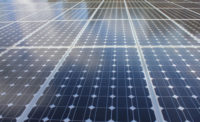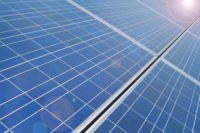MONZA, Italy—Polyolefin manufacturer Borealis has announced that it is installing a solar photovoltaic (PV) rooftop array at its plant here to generate electricity for production purposes. Interestingly, the array's modules use Borealis' Quentys encapsulant film technology.
Solar-generated electricity is expected to provide power to Monza operations by the third quarter of 2021. The amount of clean energy thus generated will save nearly 90 tons of CO2 emissions per year, the rough equivalent of having planted around 4,000 trees.
The Monza installation is the first of several solar projects planned for Borealis production operations, each of which will move the company closer to its goal of sourcing 50 percent of all electricity it consumes from renewable sources by the year 2030. The modules were manufactured by India-based Waaree Energies.
First launched by Borealis in 2017, the Quentys film extends the operational lifetime of modules, increases their power output per unit and lessens cell degradation. This results in an overall improved rate of return.
Waaree Energies operates an advanced solar module testing laboratory, the first in India to have been accredited by the Indian National Accreditation Board for Testing and Calibration Laboratories. The PV modules used in the Monza installation have been certified according to the solar module standards of the International Electrotechnical Commission, an association that publishes global standards for a variety of electrical technologies, including solar. The modules are also in conformance with the Italian Fire Class certification UNI 9177.


